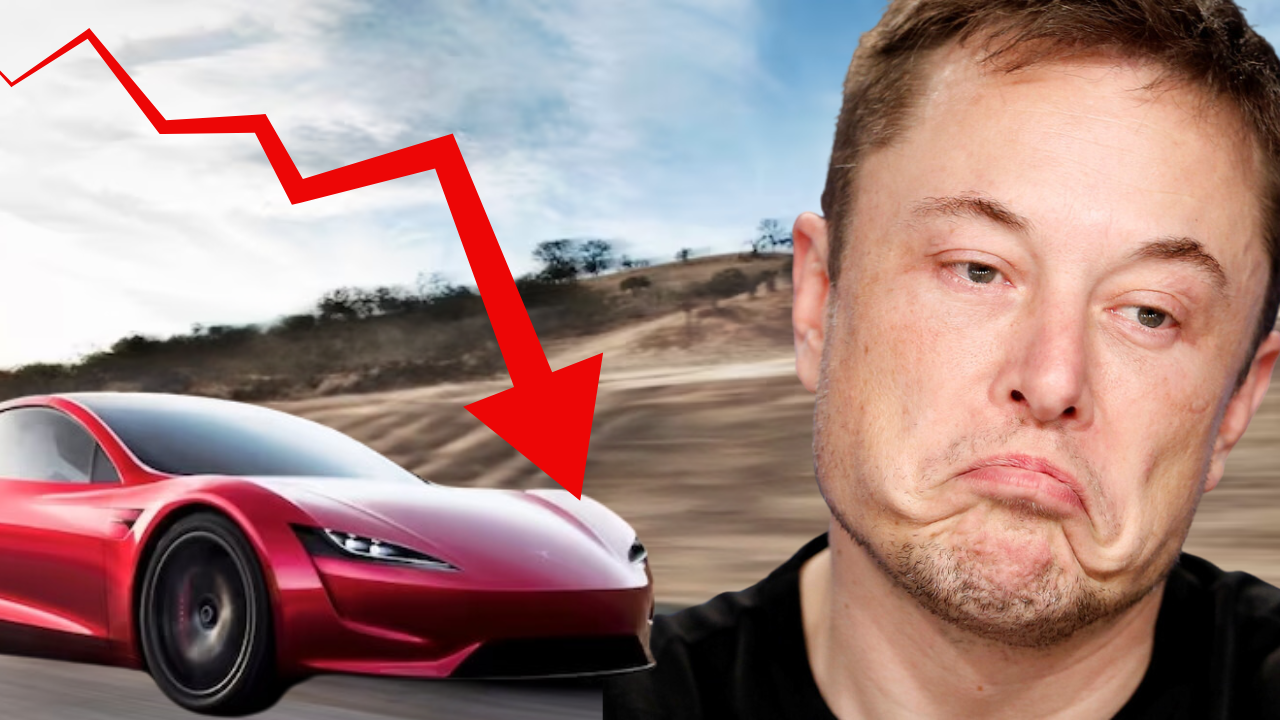

Elon Musk-owned Tesla EV Car Manufacturer Faces Deep Sales Decline-Here’s Why (image source: Canva edit)
Elon Musk-owned car manufacturing company Tesla, the Austin, Texas-based electric vehicle (EV) maker, reported a significant drop in sales during the last quarter due to escalating global competition, a slowdown in EV sales growth, and ineffective price reductions. The company disclosed that it delivered 386,810 vehicles worldwide between January and March, marking a nearly 9 per cent decline from the 423,000 units sold in the same period last year. These figures fell notably short of even the most conservative estimates by Wall Street analysts, News agency AP reported.
Factors Contributing to Sales Decline
Tesla attributed the sales downturn to various factors, including the gradual rollout of an updated Model 3 sedan at its Fremont, California factory, plant closures due to shipping disruptions in the Red Sea, and an arson incident that disrupted operations at its German facility. Additionally, the company acknowledged the anticipated reduction in sales growth for the year ahead, citing the transitional phase between the global expansion of existing models and the impending release of the Model 2, a smaller, more affordable vehicle.
Analyst Reactions and Market Impact
The unexpected sales decline prompted analysts to express concerns, with Dan Ives from Wedbush describing it as an “unmitigated disaster” for Tesla. Ives warned that CEO Elon Musk must take decisive action to reverse the company’s fortunes, highlighting potential risks to Tesla’s long-term prospects if corrective measures are not implemented. Despite maintaining an Outperform rating, Ives reduced the one-year price target for Tesla stock, underscoring the need for urgent corrective measures.
Price Reduction Strategies and Market Response
Tesla’s decision to slash prices by up to USD 20,000 on select models last year, followed by a temporary USD 1,000 discount on the Model Y in March, aimed to stimulate demand but resulted in reduced profit margins and investor apprehension. Analysts anticipated a significant decline in the average selling price of the Model Y, further contributing to investor scepticism. Consequently, Tesla’s stock experienced a 5.5 per cent decline in Tuesday’s trading, continuing its downward trajectory amid mounting concerns about the company’s growth trajectory.
Production Challenges and Market Outlook
Tesla encountered production disruptions in Germany following an alleged arson attack, while sales in China declined by an estimated 3 per cent to 4 per cent during the quarter. Although deliveries of Models 3 and Y decreased by 10.3 per cent year-over-year, sales of other models such as the ageing X and S, along with the new Cybertruck, saw a nearly 60 per cent increase. However, softer-than-expected sales in the first quarter have led analysts to revise their earnings forecasts, indicating potential challenges ahead for Tesla.
Broader Industry Trends and Competitive Landscape
Tesla’s sales decline reflects broader trends in the EV market, which experienced robust growth but showed signs of slowing towards the end of last year. Other automakers, including Ford, have also resorted to production cuts and price reductions to drive EV sales, highlighting intensifying competition in the industry. As Tesla prepares to release its quarterly earnings report on April 23, market observers are closely monitoring its performance amidst evolving market dynamics and competitive pressures, AP reported.




























